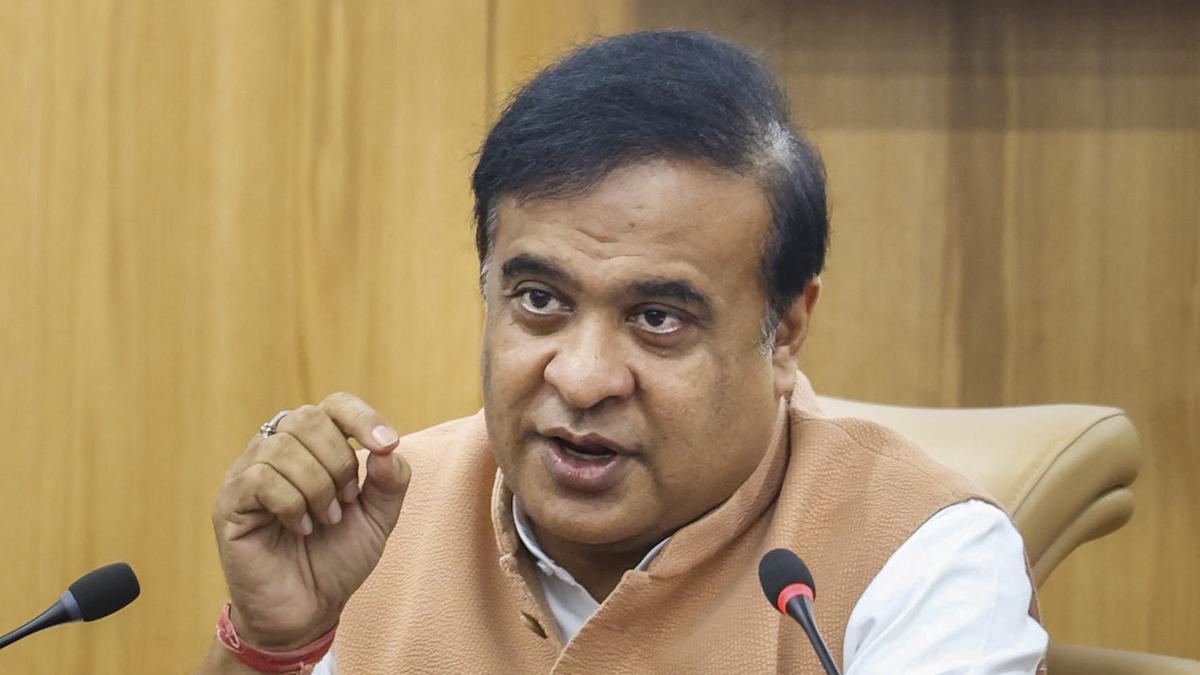 |
|
The recent Jharkhand Assembly elections witnessed a resounding victory for the JMM-led alliance, securing 56 out of 81 seats. This outcome surprised many, particularly given the considerable effort exerted by the BJP-led NDA, which ultimately secured only 24 seats. Assam Chief Minister Himanta Biswa Sarma, who served as the BJP's co-in-charge for the Jharkhand polls, has since clarified his stance on the election results, emphatically denying any prior prediction of a BJP victory. In several press conferences and social media interactions, he consistently acknowledged the challenges posed by the Jharkhand political landscape, characterizing it as a 'difficult state' where a BJP win was far from assured. This carefully worded disclaimer attempts to manage public perception and avoid responsibility for the party's significant defeat.
Despite the BJP's loss, Sarma's focus remains sharply on the issue of infiltration into Jharkhand. He consistently framed the elections within the broader context of this concern, repeatedly urging the newly elected JMM government to prioritize the identification and deportation of infiltrators. This emphasis on infiltration highlights a key strategic element of the BJP's campaign and reflects a broader national political strategy employed by the party. The issue of illegal immigration and its perceived impact on national identity and security is a powerful and emotive political theme. By highlighting this issue, even in the wake of electoral defeat, Sarma seeks to maintain political relevance and potentially lay the groundwork for future campaigns. This strategy underscores the party's willingness to utilize a variety of political tactics to advance its agenda.
Sarma's post-election statements also reveal a calculated approach to managing the BJP's setback. Rather than dwelling on the defeat, he reframed it as a valuable learning experience, emphasizing the importance of persistent effort. His Facebook live address on November 23rd, 2024, exemplifies this approach. He urged BJP's elected MLAs to take on the opposition's role and raise the issue of infiltration within the assembly. By shifting the narrative from outright defeat to a strategic repositioning within the opposition, he attempts to minimize the impact of the loss on the party's overall image and standing. He also appeals to the electorate, expressing gratitude for support received during the campaign, indicating an attempt to maintain positive engagement with Jharkhand's population.
The Assam CM's active engagement in Jharkhand's electoral process, his consistent emphasis on the issue of infiltration, and his strategic response to the election results offer valuable insights into the BJP's approach to campaigning and managing electoral setbacks. His actions highlight the party's ability to adapt its strategies and maintain a coherent political narrative even in the face of adversity. The Jharkhand election serves as a case study of the BJP's multi-pronged approach to political campaigns, combining targeted messaging around key issues, sustained engagement with voters, and a carefully constructed post-election narrative designed to minimize the impact of electoral defeats.
Analyzing Sarma’s statements, it becomes clear that his denial of predicting a BJP victory in Jharkhand was carefully calculated. His consistent emphasis on the difficulty of the state and its unique challenges suggests a proactive effort to manage expectations and avoid accusations of overconfidence. This strategic communication avoids assigning blame or fault to specific individuals or campaign strategies, thereby maintaining party unity and minimizing internal strife. Furthermore, his continued focus on infiltration, even after the election, underscores the importance of this issue within the BJP's broader political agenda, highlighting the party's long-term political strategy and its willingness to use key issues to resonate with a wider electorate.
The post-election narrative presented by Sarma provides a useful lens through which to examine the BJP's approach to both electoral campaigns and their outcomes. By reframing the defeat as a learning opportunity and by highlighting the issue of infiltration, the party maintains a sense of momentum and avoids appearing demoralized. This strategy is crucial in maintaining public support and ensuring that the party remains a powerful force in Indian politics. The election in Jharkhand, though a loss, offers valuable data points for future campaigns and provides insights into how the BJP navigates both victory and defeat.
The overall impact of Sarma's actions and statements reflects a pragmatic approach to electoral politics. He has demonstrated an ability to swiftly shift the focus from the immediate outcome to broader long-term political goals. This suggests a high degree of political acumen and an understanding of how to maintain public engagement and support even in the face of electoral disappointments. The focus on infiltration, a strategically significant issue, allows the BJP to maintain a consistent message and demonstrate commitment to key political priorities, regardless of electoral outcomes.
Source: Never claimed BJP would win Jharkhand Assembly polls: Himanta
